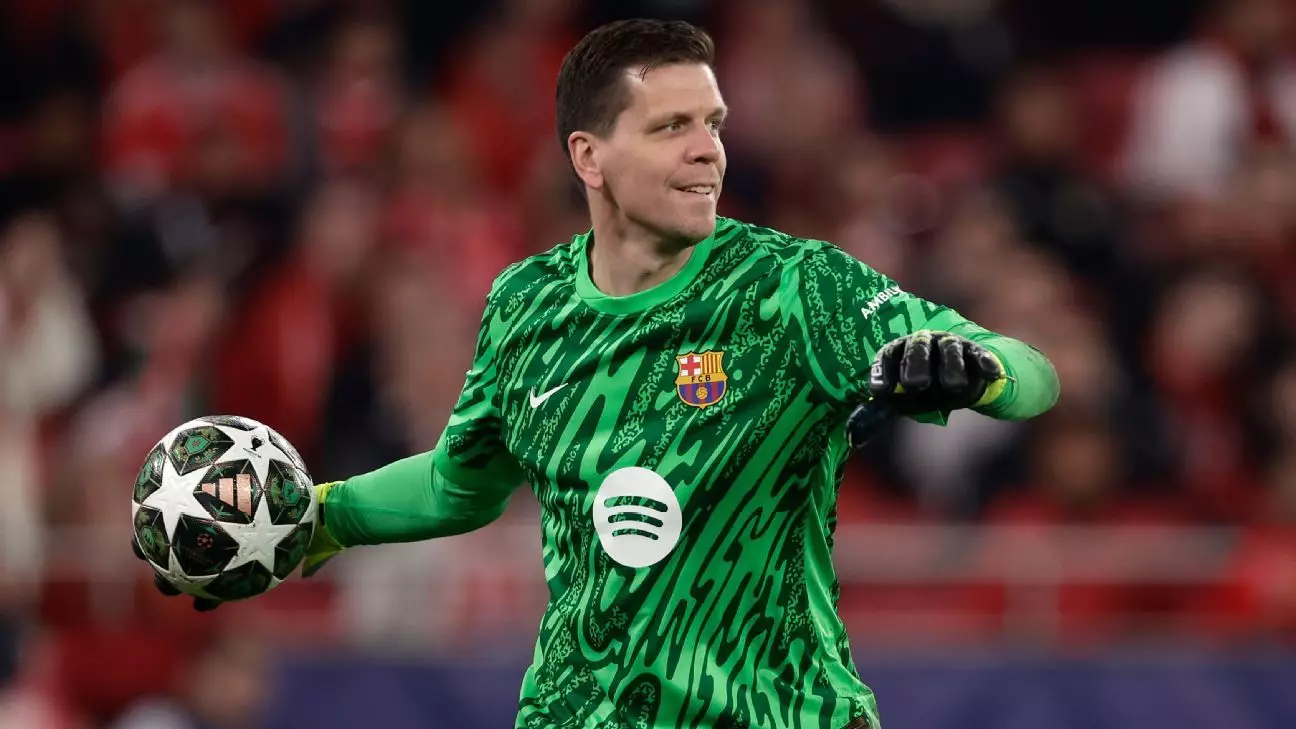Wojciech Szczesny’s journey in football has been anything but ordinary. Since coming out of retirement to join Barcelona, he has quickly become a fan favorite, standing tall as the team’s reliable goalkeeper. However, it is his openness about his smoking habit that has captivated audiences and sparked a broader conversation about personal accountability in the world of sports. Szczesny stands at an intersection of success on the field and struggle with personal challenges, revealing that even the most accomplished athletes deal with human vulnerabilities.
His story is a compelling reminder that no matter how well we perform professionally, personal battles can still take a toll. The support from fans, who chant “Szczesny fumador,” though affectionate, speaks to a duality—celebrating his abilities while also highlighting an addiction that many would consider detrimental. The juxtaposition of a successful career alongside an admission of failure paints a complex portrait of modern athletes and their everyday struggles.
The Duality of Success and Struggle
Szczesny’s reluctance to glamorize smoking reflects a powerful moral stance, offering a counter-narrative to the often-romanticized images of athletes. By frankly admitting his defeat in battling this addiction, he positions himself as more than just a goalkeeper; he becomes a voice for honesty in a competitive space where image is paramount. His statement that “I’ve lost the fight” is both poignant and direct, urging young fans and teammates to heed his warning.
This honesty can be refreshing within a sports culture where athletes often uphold an unrealistic image of perfection. Smoking may seem trivial in the grand scheme of professional challenges, but it represents a larger trend of healthy living where athletes are expected to be role models in all aspects—inside and outside of their sport. Szczesny breaks traditional protocol, encouraging a dialogue around addiction and self-discipline, which can resonate deeply with both fans and fellow athletes.
Openness in a Constrictive Culture
Szczesny’s willingness to open the discussion around smoking is exceptional, given that it goes against the grain of a sporting culture that typically avoids conversations about personal vices. His commentary on not being a politician underscores a desire for authenticity over pretense. He recognizes that being truthful can be extremely liberating, even if it puts him at odds with societal expectations.
This candid nature stands in sharp contrast to how many athletes navigate media interviews, often deflecting personal topics in favor of maintaining a polished public image. Szczesny sets himself apart by asserting that honesty is not just refreshing but necessary. In an era marked by curated social media personas, he embodies a rarity—the athlete willing to confront their flaws openly.
The Impact of Vulnerability
In his statements, Szczesny illustrates that vulnerability does not diminish strength; rather, it enhances it. His admission can encourage others, especially younger fans, to confront and address their own challenges without fear of judgment. By establishing that no one is above such struggles, he contributes to a more supportive environment where personal growth take precedence over perfection.
Moreover, his unpolished confession can foster a more significant conversation about mental health and addictions in sports, areas that remain largely stigmatized. The ramifications of his honesty extend far beyond his individual dilemma—sparking discussions that question how the sporting community defines success, failures, and the need for mental well-being practices.
A Shift in Perception
As Szczesny continues performing remarkably with 13 clean sheets in his Barcelona tenure, he becomes an even more compelling figure. Winning games while grappling with personal battles adds a rich layer to his narrative. His performance, coupled with his openness about smoking, offers a unique platform for discourse on what it means to be a successful athlete in a flawed world.
Ultimately, Szczesny invites everyone associated with the sport—fans, teammates, and organizations—to reconsider how they view personal struggles. Emphasizing that it’s acceptable to acknowledge one’s weaknesses promotes a healthier environment where athletes can retreat from the pedestal and be seen as human. Through vulnerability, Szczesny redefines what winning in both sports and life truly means.

